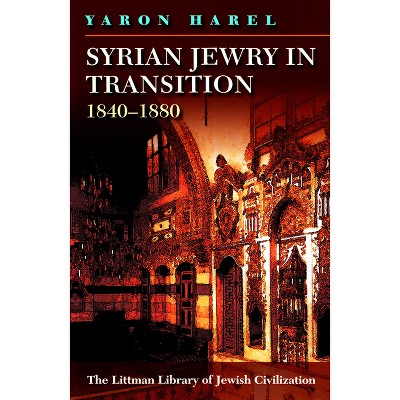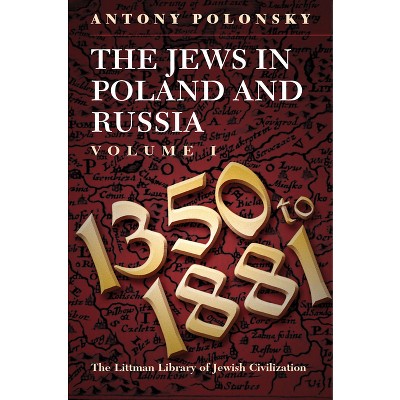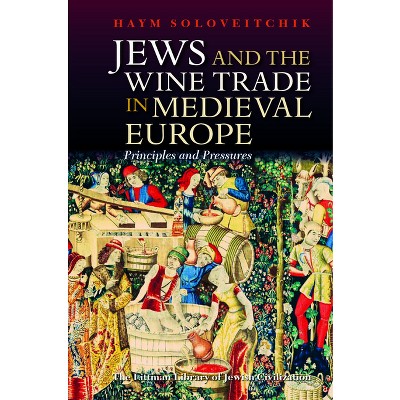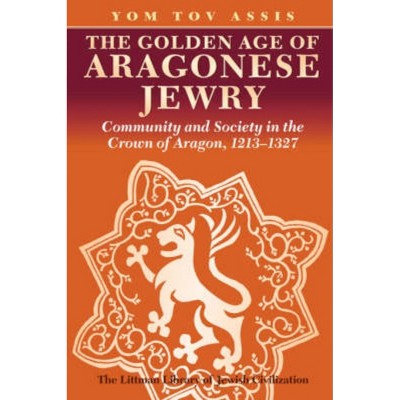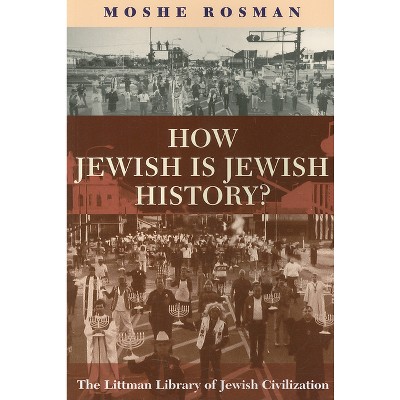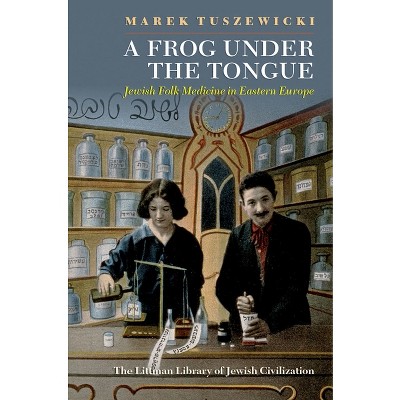Jews in Muslim Lands, 1750-1830 - (Littman Library of Jewish Civilization) by Yaron Tsur (Hardcover)

About this item
Highlights
- This fascinating tour of the Jewish communities of the Ottoman Middle East, on the eve of the changes that would come to unsettle the Ottoman territories, reveals a surprisingly varied world.
- About the Author: Yaron Tsur is Emeritus Professor in the Department of Jewish History at Tel Aviv University, where he is head of the research unit on the Jews of Islamic lands.
- 272 Pages
- History, Jewish
- Series Name: Littman Library of Jewish Civilization
Description
About the Book
The Jewish communities of the Ottoman Middle East were surprisingly varied. In exploring them, Tsur reconsiders fundamental questions about the nature of diasporas and the influence of majority culture on minorities. He offers new ideas about Jewish responses to modernity and the social mechanisms enabling elites to function.
Book Synopsis
This fascinating tour of the Jewish communities of the Ottoman Middle East, on the eve of the changes that would come to unsettle the Ottoman territories, reveals a surprisingly varied world. Visiting Istanbul, Damascus, Acre, Jerusalem, Aleppo, Basra, and Cairo, we see different landscapes, meet diverse Jewish societies, and encounter the range of their economic activities. We also see how Christians and Jews struggled with each other to establish their position in the Muslim world and secure their livelihood. In the process, the author reconsiders fundamental questions. What is a 'diaspora'? To what extent did the surrounding culture impact the Jewish communities of the area? And, most interestingly, how did these communities respond to the onset of modernity? Though relating to Jewish society in its entirety, the main focus is on its most powerful members: the notables, who were close to the ruling elite or involved in international trade. Tsur discusses their strengths and weaknesses, considers the relationship between their position and that of the rest of the Jewish community, and analyses their eventual downfall. His study offers new insights into the social mechanisms that enabled them to establish close ties with the ruling elite and to function within it.
Review Quotes
"The significance of this book lies in its broad synthesis and in Tsur's interpretative process, based on decades of research . . . (He) acquaints his readers with some of the key processes that unfolded within the Jewish communities of the Ottoman Middle East on the threshold of modernity, and also offers important insights into the causes and consequences of those processes . . . a fascinating journey across Jewish supra-communal networks."
Avner Visnitzer, Hamizrah Hehadash"Tsur tells the story of the political leadership of the Jewish communities in the Ottoman Middle East against the backdrop of the economic and social realities . . . Based on a wide range of sources he proposes a new order of events and offers interesting explanations of his own. With its original insights and conclusions, this book will serve as an essential resource to researchers and to anyone interested in the history of the Jews of the Ottoman Empire."
Leah Bornstein-Makovetsky, Pe'amim"This book will take a prominent place among the most important works on the subject of Ottoman Jewry, and will be a definitive resource for generations of students in departments of Jewish history and Middle Eastern studies. . . . His creation of a new vocabulary and with it a new conceptual system is doubtless a major contribution to the study of history."
Dotan Arad, Zion
About the Author
Yaron Tsur is Emeritus Professor in the Department of Jewish History at Tel Aviv University, where he is head of the research unit on the Jews of Islamic lands. He is the founder and academic director of JPress, the Historical Jewish Press website of the National Library of Israel and Tel Aviv University. His books include The Jews of Casablanca: A Study of Modernization in a Colonial Jewish Society (Hebrew; with H. Hillel, 1995), and A Torn Community: The Jews of Morocco and Nationalism 1943-1954 (Hebrew; 2001), winner of the Zalman Shazar Prize for Research in Jewish History (2002).





